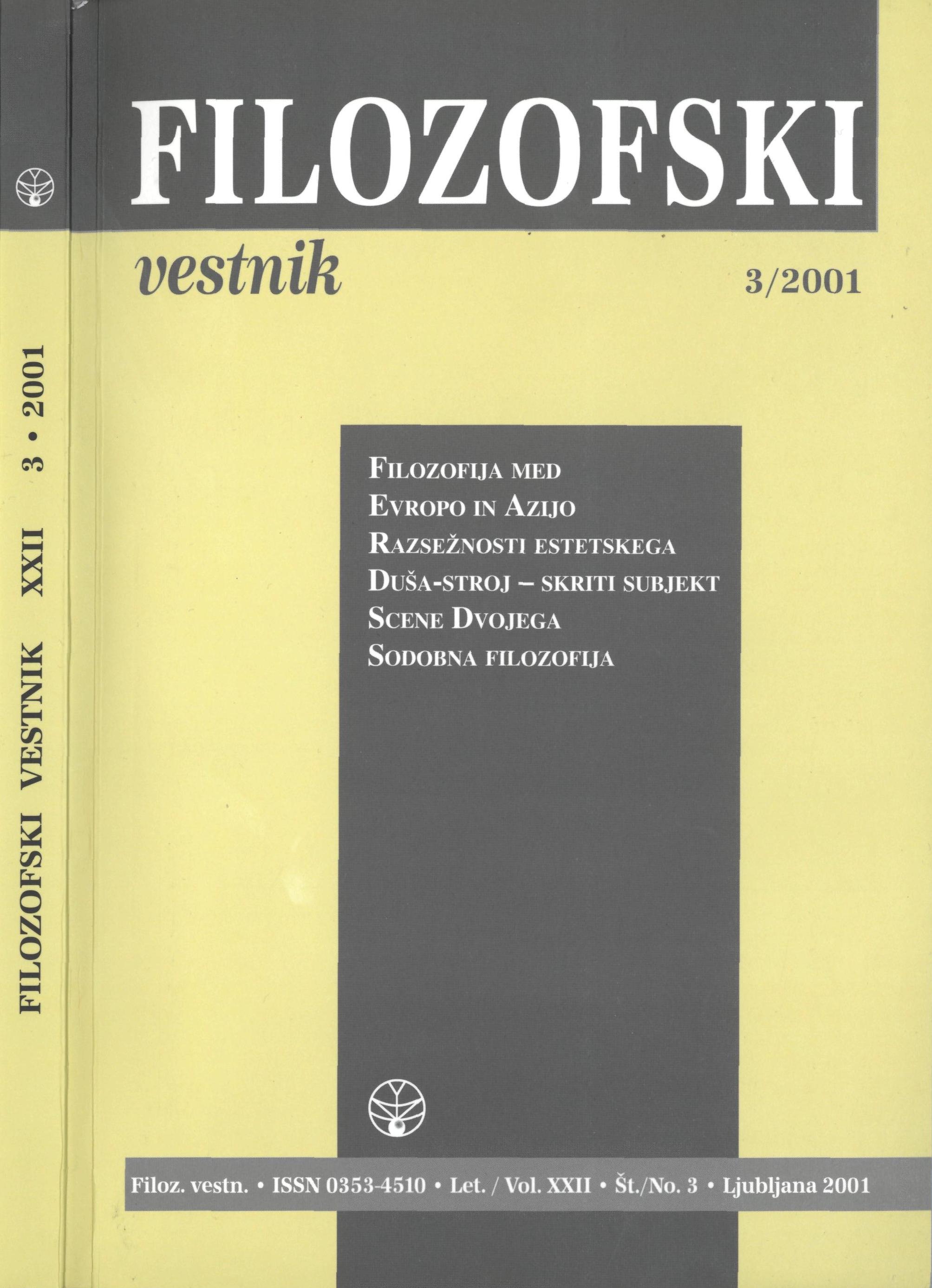Ekološki vidiki daoizma: kaotičnost narave in etika nevmešavanja
Ključne besede:
daoizem, ekologija, teorija kaosa, princip nevmešavanja, wuweiPovzetek
Kaotičnost - izmikanje artikulaciji in udomačitvi - predstavlja bistveno komponento daoističnega koncepta narave. Teorija kaosa kot znanstvena formulacija ideje o divjosti narave izoblikuje koncept narave kot stabilnega kaotičnega sistema in s tem vnese nekaj bistvenih sprememb v ekološko misel. Zaradi nelinearnosti in indeterminizma kaotičnih sistemov se spremeni razumevanje kavzalnih odnosov med človeškimi dejanji v naravi in njihovimi učinki. V daoizmu je narava razumljena kot spontani (ziran) tok premene (hua) in deluje podobno kot stabilni kaotični sistemi. Zato poskuša članek preučiti primernost daoističnega principa nevmešavanja wuwei kot možnega načela za človeško delovanje v naravi. Povezavo človeka s celoto narave omogoča princip De, ki tako tvori temelj t. i. zmernega daoističnega pristopa k ekološkemu delovanju.Prenosi
Podatki o prenosih še niso na voljo.
Prenosi
Objavljeno
2016-01-17
Kako citirati
Motoh, H. (2016). Ekološki vidiki daoizma: kaotičnost narave in etika nevmešavanja. Filozofski Vestnik, 22(3). Pridobljeno od https://ojs.zrc-sazu.si/filozofski-vestnik/article/view/3619
Številka
Rubrike
Filozofija med Evropo in Azijo
Licenca
Avtorji jamčijo, da je delo njihova avtorska stvaritev, da v njem niso kršene avtorske pravice tretjih oseb ali kake druge pravice. V primeru zahtevkov tretjih oseb se avtorji zavezujejo, da bodo varovali interese založnika ter da bodo povrnili morebitno škodo.
Podrobneje v rubriki: Prispevki





